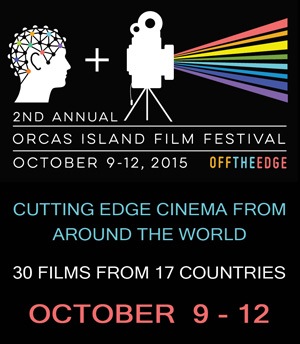— by Paula Treneer —
(Paula Treneer has been an avid film viewer and reviewer for film festivals in Seattle, Abu Dhabi and Berlin. She will review select films of the Orcas Island Film Festival for Orcas Issues. To reviews the Film Festival schedule, go to www.orcasfilmfest.org)
OIFF Film Review: “Dheepan”, directed by Jacques Audiard
During Orcas Island Film Festival’s impressive line-up of first evening films was “Dheepan”, a controversial winner of the Palme d’Or at this year’s Cannes Film Festival, directed by Jacques Audiard, known to US audiences for his melodrama “Rust & Bone”, but with an acclaimed oeuvre in France.
Dheepan follows a former Tamil Tiger along with two other refugees from the Sri Lankan civil war, a woman and child, who pose as his wife and daughter in order to increase the likelihood of gaining refugee status within France.
Beginning with a scene of burning corpses within the Sri Lankan jungle, the trio journey through the travails of the French immigration scene and their quasi-assimilation into Parisian “banlieue” life as he begins his new job as a “gardien” (caretaker) at one of the dismal housing projects in the Paris suburbs. The film follows the rhythm of their daily life, from the young girl’s assimilation into a French school and acquisition of the necessary language skills to function at a rudimentary level: Dheepan’s assiduity in tackling the filth and chaos of the building to which he is assigned; and finally to the woman pretending to be his wife, who takes a job cooking and cleaning for an elderly neighbor, whose son is one of the local drug lords.
The film takes a twist away from what seems to be a sympathetic regard of the challenges facing France’s immigrants in refashioning their lives within a completely foreign environment, when the banlieue drug-related violence suddenly escalates, scooping up the son of Dheepan’s wife’s employer, and subsequently eliciting a spasm of retributive violence from Dheepan in a nod to Sam Peckinpaugh’s “Straw Dogs”, according to an interview with the director published in the French press. (Source: movie preview guide published by Bercy Cinema, Paris, August 2015)
The film’s strengths include a sensitive portrayal of the European immigrant experience, fine performances by the actors, and a compelling reminder of the human toll taken by one of the modern epoch’s most disastrous episodes of liberation struggle turned into civil war and subsequent genocidal retribution taken against the rebels by the Sri Lankan government while the UN failed to restore peace or protect the civilian population. Some of this is hinted at by the film’s protagonist’s flashbacks to his youthful indoctrination by the Tamil Tigers, and the subsequent psychological trauma which seems to elicit the film’s violent dénouement.
**If you are reading theOrcasonian for free, thank your fellow islanders. If you would like to support theOrcasonian CLICK HERE to set your modestly-priced, voluntary subscription. Otherwise, no worries; we’re happy to share with you.**









